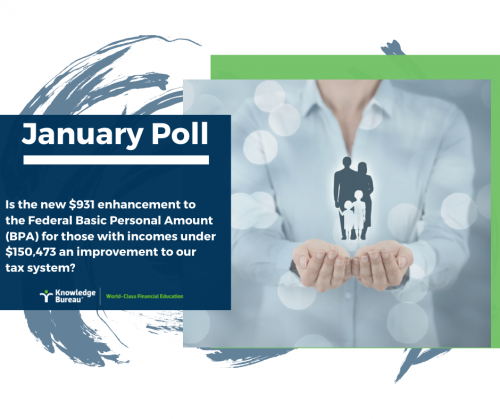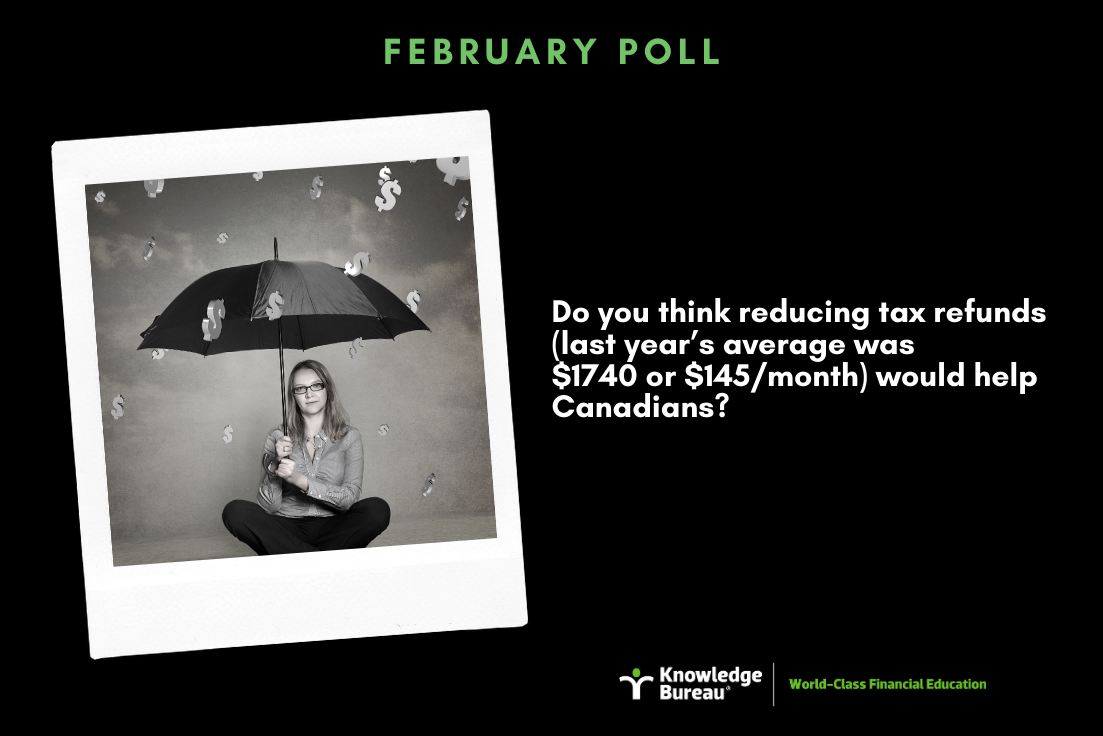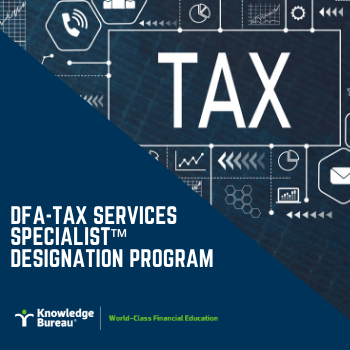Last updated: February 04 2020
New BPA: Poll Says ‘No’, It Doesn’t Improve Tax System

Beth Graddon
The new Basic Personal Amount proposed on December 9, 2019 is very complicated. The calculations on the TD1 forms and their accompanying worksheet will challenge even those with pride in their financial literacy. What do tax and financial advisors think: is this tax change an improvement to our tax system? You may be surprised at the verdict in last month's poll.
We asked, “In your opinion, is the new $931 enhancement to the federal Basic Personal Amount for those with incomes under $150,473 an improvement to our tax system?” and 66.67% of the 373 people who participated said “no”. Here are some of their comments:
"Successive governments keep tinkering with the tax system which turns int a good sound bite but has no teeth. The tax system is far too complicated and should be overhauled.” - Mark Houghting
“Either give a credit or don’t. They are complicating a tax system for no particular reason. Plus, the changes to CPP are also complicating the system. Thankfully they will keep people like us  busy for a long time to come. But for the taxpayer they are making things more difficult to understand.” - Doris Woodman-McMillan
busy for a long time to come. But for the taxpayer they are making things more difficult to understand.” - Doris Woodman-McMillan
“Although it will reduce income tax by a small amount, increases in other areas result in a greater amount. Overall, most people will be paying more in taxes this year than last. They have changed the tax forms again this year, which makes them more confusing and harder to follow what effect changes have. There are still pages missing from some forms, like Provincial tax credits from the multi-jurisdiction form, lines non-existent for some items - typically credits, not income to be taxed. The Basic Personal Amount enhancement had to be advertised to distract from all the losses of other incentives. Lower the income level to $100,000 and increase the enhancement to make it meaningful. Or, stop removing the other few deductions the average middle-class person has.” - Martin
“As everyone else has pointed out, the individual tax savings are negligible. It will be swallowed up by the increase to CPP contributions. However, because it affects so many people, the effect on government revenues is huge - $21 billion over five years according to the Parliamentary Budget Officer in a story on CBC today. This is $21 billion which could have been better spent.”- Peter Coles
“This does not improve the tax system. It is only a minor patch and just creates a more difficult system with little bits of credit here and there and little take aways here and there. Overall it does not do much.” - Len B
“Adding a 1% tax on wealth over 20 million will generate more tax, and introducing universal Canada wide Pharmacare will reduce the costs which result from people, unable to pay for drugs unable to work, requiring hospitalization and other high cost public facilities and services. The pittance being promoted probably costs more for advertising than any benefit to the public.” - Marilyn Kenny
“This tax credit is very minor benefit to anyone. The tax system does need to be reviewed and reset so it is not oppressive to those who desiring to create wealth. The wealthier the citizens the wealthier the country as a whole. Unfortunately, it seems few understand this. The “Laffer Curve” on income tax exemplifies this though. The higher the taxes, the more wealth will flee the country and less will stay and be invested.” - CJ Prince
“This enhancement saves most Canadians less than $140/year, which is very small considering all the publicity being directed to it. This tax cut is too small to be felt and will quickly be swallowed up by higher CPP contributions and increasing carbon taxes. Sure, we’ll accept the $140 tax discount, but in the grand scheme of things, it is merely a token of what should have been. Our finance department needs to learn to use an axe, not just a pocketknife.” - Daniel Housser
“They make it sound so wonderful, but it is just a pittance in the average family. Costs of living keep increasing and they give us a band aid solution. With all the other tax credits removed or dwindling, this is no help at all. The statement the government owes us comes to easy. It is not their money to spend it comes from the taxpayer and more and more we are funding things that we have no say over.
Our seniors are starving and have no health care. Families cannot afford rent.” - Alice Manderson
“Once again it provides Canadians with a tax savings, albeit it is a tax credit. I agree with others reduce the limit to $75,000. Allow taxpayers to spend the money in the economy. Indirectly a portion will end up back in the government coffers. Like others I do not want to give the government more money since they do not have a very good record managing it; hence our national deficit.” - Roger Arseneau
“This a just a band aid on the wound.” - Veronique Dewilde
 “It allows the government to act like they have done something great when all they are doing is making the tax system more complex. I once saw a tax return for the year 1957. It was one legal size page!” - Helen
“It allows the government to act like they have done something great when all they are doing is making the tax system more complex. I once saw a tax return for the year 1957. It was one legal size page!” - Helen
“Not nearly enough, especially for the lower end of the “middle class”. - Gale Hayashi
“It should be only for people who make 1/2 that much ie. $75,000.” - Val
“As with most things federal, it consists of smoke and mirrors designed to confuse those who will not do any further investigation. Seems like this is move will have little effect as many other deductions have been removed. And please stop calling anything relating to this policy a cost; it costs nothing and simply is a reduction in revenue for one part of an increasingly complicated tax regime.” - Lyle
“it should freeze the upper bracket and increase lower brackets.” - Gerry Campbell
And to two comments that said “yes”, that demonstrate how complex this issue is:
“Any reduction in personal income taxes is always a ’good’ thing for us taxpayers. It allows more money to be spent in our local economies. Even though, I certainly do not trust this current governing party, as far as I can throw them, as they always find an alternate tax to ‘recoup’ most tax breaks given to Canadians.” - Gaetan Ladouceur
“Yes, but the threshold should have been lower - maybe to 75,000 or so; same as OAS repayment level; to focus on lower income individuals and not affect federal revenue so much.” - Anni Markmann
We would like to thank everyone for contributing their thoughts. Please join us again this month when we ask: “At a time when 48% of Canadians say they are $200 away from insolvency, do you think reducing tax refunds (last year’s average was $1740 or $145/month) would help?” Weigh in!
COPYRIGHT OWNED BY KNOWLEDGE BUREAU INC., 2020.
UNAUTHORIZED REPRODUCTION, IN WHOLE OR IN PART, IS PROHIBITED.
